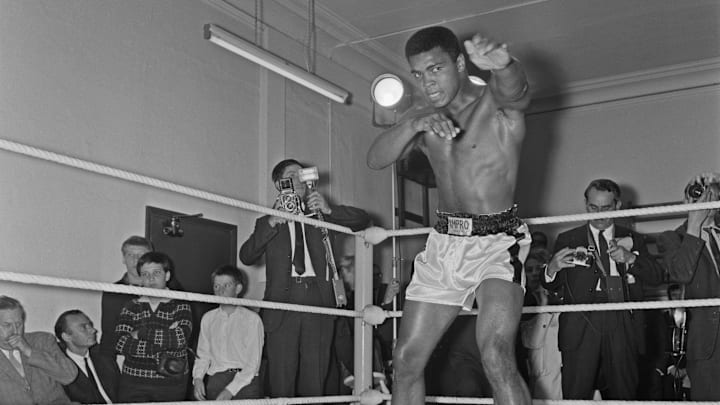For most of its existence, the Olympics were considered a "proving ground" of sorts with its competition prohibiting professional athletes from participating. The quadrennial games served as the biggest platform an amateur athlete could have and boxing was no different.
Though he is no longer considered the best boxer of all time, Muhammad Ali is still the most famous fighter to ever step into the ring with arguably the biggest impact on the sport from any singular athlete. Before he became the fighter he is known as in the 21st century, Ali, like many others from his era, got his start by succeeding in the Olympics.
Then known as Cassius Clay, the American qualified for the United States boxing team ahead of the 1960 Summer Olympics held in Rome, Italy. To earn his way onto the team, Clay took down Henry Hooper, Fred Lewis and Allen Hudson in the US Olympic Trials.
He would represent his country as a light heavyweight alongside the eight other members of the team: Jerry Armstrong, Humberto Barrera, Harry Campbell, Ed Crook Quincy Daniels, Wilbert McClure, Percy Price and Nikos Spanakos.
Despite being just 18 years old at the time of his Olympic participation, Clay had already been boxing for six years after making his amateur debut as a 12-year-old. Before entering the Olympics, Clay had already proven himself as one of the best amateur boxers with countless achievements. Before turning professional, Clay had won six Kentucky State Golden Gloves Championships, one Intercity Golden Gloves Championship, one National AAU IChampionship and one Chicago Golden Gloves Championship.
Muhammad Ali's Olympics breakdown
By the end of the two-week-long tournament, Clay earned a gold medal with a win over Poland's Zbigniew Pietrzykowski in the final match. The win would mark his lone Olympic medal as just a few months later, Clay would make his professional debut, signaling the end of his amateur career.
Clay would be one of three Americans to win gold that summer with McClure winning the light middleweight division and Crook taking the crown at middleweight. However, Daniels would be the only other countryman to medal, earning bronze at light welterweight, giving the United States four total medals in boxing.
The four medals would not be enough to finish first as Italy proved to be the best in the sport with seven total medals, including three gold medalists. Italy would be led in 1960 by Nino Benvenuti, who would go on to become a two-division undisputed champion as a professional and later be inducted into the International Boxing Hall of Fame in 1992.
As for Clay, one year after he won gold at the 1960 Rome Summer Olympics he converted to Islam and officially changed his name to Muhammad Ali along with his younger brother, Rahaman Ali, who was born Rudolph Clay. The rest, as they say, is history.
Upon turning professional, Ali would move up to the heavyweight division and earn the nickname 'The Greatest' by the end of his career. Though much of his legacy would be hampered by a three-year ban in 1967 due to his refusal to accept mandatory service, the consensus most influential boxer of all time would win 22 world title fights across multiple reigns as champion.
To this day in 2024, Ali is forever remembered for his professional achievements but is still regarded as having one of the most accomplished amateur careers of all time. His exact amateur record is unknown with several discrepancies in that department, but the achievements he managed to reach in six years as a young teenager that was capped off with an Olympic gold medal are still highly lauded.
